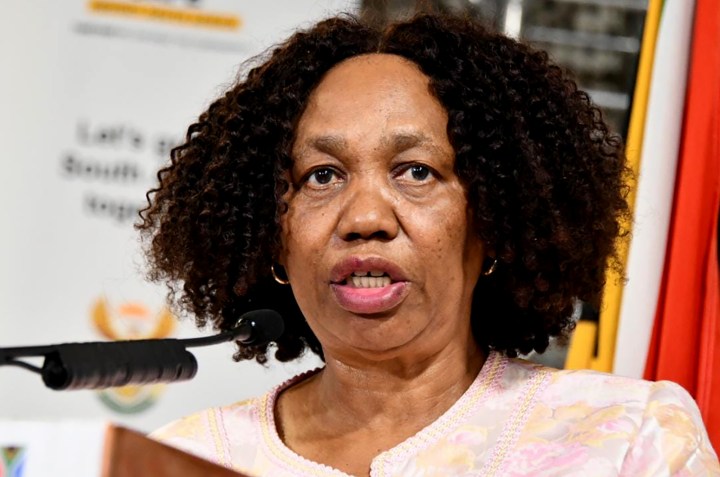Newsflash
Angie Motshekga urges parents to send pupils back to school as Covid-19 cases drop

Schools in South Africa are experiencing fewer Covid-19 disruptions, says the Minister of Basic Education, Angie Motshekga, but pupils’ return rate to school is still a concern.
When the phased return of pupils to school started in June, outbreaks of coronavirus cases posed a headache for the education sector.
By the end of June 2020, 700 school staff members and 88 pupils had already tested positive for the virus in a single province, the Western Cape.
It appears though that outbreaks have diminished, thanks to measures put in place at schools and a lower rate of Covid-19 infections in the country.
During a media briefing on 1 October 2020, the Minister of Basic Education Angie Motshekga said there has been a significant decline in Covid-19 cases.
“We hardly see any schools being closed and reopened [as] before, and this can be attributed to the adherence to the revised standard operating procedures,” she said.
The country’s move to alert level 1 saw most lockdown regulations eased and economic activity returning to some form of normalcy.
But while all grades have returned to school, class attendance was limited to adhere with social distancing regulations.
Most public schools are using the platooning system (where grades take turns using school facilities), alternating attendance on different days of the week, or rotating classes.
The models assist schools with large numbers of pupils, to avoid overcrowding and ensure social distancing.
However, Motshekga said the rotation and platooning methods increased the risks of pupils losing interest in school and forgetting “critical curriculum topics already covered at school”.
“The difficulties in timetabling will be with us for the remainder of the year as we continue to balance teaching and learning with saving lives,” she added.
The minister encouraged households to encourage reading as a way to curb the disinterest pupils might develop from not attending school regularly.
“One of the programmes that can help in keeping the children engaged is the ‘Read to Lead’ campaign. We will soon embark on the reading campaign to once again promote reading, but this time as an essential service that could help save our children under the Covid-19 circumstances,” she said.
Motshekga raised concern about pupils who have not returned to school yet. The department says at most schools they visited, the return rate was between 80% to 90%.
“We are, however, concerned that there are still a number of learners who have not yet returned to school and we can’t account for them.
“While it is encouraging to see the numbers increase gradually, we appeal to parents to release their children to return to school,” she said.
During a recent presentation to Parliament’s Basic Education Committee, the department reported staggering dropout rates for grades 7 and 12.
In the Eastern Cape, 3,350 grade 7 pupils and 1,195 matrics were vulnerable to dropping out. In Gauteng, the figure stood at 1,066 for grade 7s and 1,087 for matrics. KwaZulu-Natal had the highest dropout projection at 38,541 for grade 7s and 18,708 for matrics.
The minister said with the country having moved to alert level 1, schools can resume with non-contact sports training and physical activities, subject to compliance with Covid-19 regulations.
“We will gazette new directions in this regard once the processes have been completed,” she said.
Motshekga further assured that access to the national school nutrition programme had drastically improved, after weeks of inadequate provision to pupils.
Court orders the department of basic education to urgently feed 9 million hungry children
In June, the department was ordered by the North Gauteng High Court to feed children who rely on the programme, whether they are at school or not.
The department was taken to court by the civil society group, Equal Education after it failed to resume the feeding programme for all beneficiaries, despite committing to do so, in line with legislation.
The 2021 academic calendar will commence on 25 January 2021 but the minister warned that because of learning disruptions due to the pandemic, work from the 2020 academic year will be carried over into 2021.
“To allow for this, we have revised the annual teaching plans to extend to next year,” Motshekga said.
The 2021 school calendar will be gazetted on Friday, 2 October 2020. DM


















 Become an Insider
Become an Insider
Comments - Please login in order to comment.